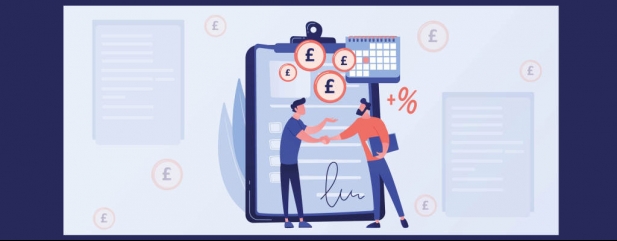Archived article
Please note that tax, investment, pension and ISA rules can change and the information and any views contained in this article may now be inaccurate.
Why do fund managers lend stock to short sellers?

Why do institutional investors such as fund managers lend shares to people who are betting that a share price will fall? I understand they receive a fee but won’t the shares on loan be worth less when they are returned? How does that support their main objective which is (presumably) to provide good investment returns for their stakeholders?
Paul
Ryan Hughes, head of active portfolios at AJ Bell, replies:
This is a good question. After all, it feels unnatural to think that a fund manager might lend a stock they own to another manager, particularly when the latter is hoping that the share price will fall.
However, it’s not just other fund managers that the stock gets lent to. Brokers also want to borrow the stock to ensure that they have sufficient liquidity in that stock to fulfil their obligations as a market maker.
In both cases, whether lending to a broker or a short seller, the fundamental difference between these two parties and the owning fund manager is time horizon.
What is short selling?
Short selling involves taking a bet that a specific company’s share price will decline.
The individual would effectively borrow shares from someone else for a small fee, sell them to raise capital and buy the same number of shares again at cheaper price in order to return the stock to the original lender, keeping the difference in price as profit.
If the shares go up in value then the short seller will either have to put more cash into their trading account to keep the bet going or be forced to buy stock at a higher price in order to close out their position.
Short selling is very high risk and is not suitable for most retail investors. When buying a share, the maximum amount someone can lose is 100% – i.e. everything they originally invested. When shorting a share, it is possible to lose more money than placed on the bet. [DC]
The fundamental owner of the stock is, in nearly all cases, going to be a long-term investor. They aren’t simply holding the stock for a short-term gain, and therefore they are comfortable with the idea of lending this stock to someone else as they have little intention of selling it in the near future.
This allows them to generate a small amount of revenue that invariably gets split between the fund and the asset manager.
If you take a passive fund as an example, they will be very happy lending their big FTSE 100 stocks as they will in all likelihood be holding them for many years and therefore over time the additional income generated by stock lending can be significant.
A study last year indicated that stock lending revenue in 2019 was nearly $8.7 billion so we are talking about big sums.
What you can learn from short sellers
Short sellers are often viewed negatively. They can be perceived as greedy and downright manipulative.
What is usually forgotten amid the emotion is the real value that short sellers can sometimes bring. For decades short sellers have done the hard digging required to expose corporate fraud, for example.
When analysts, fund managers and a company’s own auditor fail to identify serious problems in a business, sometimes the short sellers can.
In some cases, the FCA or the Serious Fraud Office are only alerted to potential rule breaking after it has been exposed by a short seller.
A generous interpretation might characterise short sellers as the stock market’s detectives. That said, one must also recognise the potential for individuals to spread lies to drive down a share price for their own financial gain. [SF]
TYPICAL BORROWERS
If we think about who is borrowing the stock, then a broker has a very short time horizon – perhaps only a day, maybe a bit longer – but will happily pay a small fee for short term borrowing to ensure they can meet their obligations.
The second typical borrower is a short seller and the evidence suggests that most investors/traders in this category have a short time horizon, often measured in a few weeks or months. This is because they often see a catalyst for a share price to fall and therefore will likely go short around that time.
Given the cost of borrowing is expensive for a short seller, they are unlikely to hold their shorts for long periods. Therefore, the long-term holder can lend to the short seller without worrying too much about what the short-term share price movement will be. Even if it falls over the course of a few weeks, their time horizon is much longer.
PAIR TRADES
Some short sellers aren’t even hoping the share price falls, they are simply hoping that one stock outperforms another, known as a pair trade. They may go short Lloyds (LLOY) and long Barclays (BARC) and therefore if Barclays outperforms Lloyds, they win even if both shares go up. The lender of the stock is oblivious to the motives of the borrower and is happy as long as they receive their fee.
Ultimately, there is a belief that shorting helps make the market more efficient, something the Federal Reserve suggested after the last financial crisis.
However, at various times, there will be certain instances or stocks that seem to bring this into question. It’s important to remember that huge amounts of stock lending happen every day without any consequence for investors and, as indicated above, can generate significant revenue which helps returns for investors. Whether there is enough transparency around the investor doing the lending and to whom is another matter.
Important information:
These articles are provided by Shares magazine which is published by AJ Bell Media, a part of AJ Bell. Shares is not written by AJ Bell.
Shares is provided for your general information and use and is not a personal recommendation to invest. It is not intended to be relied upon by you in making or not making any investment decisions. The investments referred to in these articles will not be suitable for all investors. If in doubt please seek appropriate independent financial advice.
Investors acting on the information in these articles do so at their own risk and AJ Bell Media and its staff do not accept liability for losses suffered by investors as a result of their investment decisions.

 magazine
magazine








